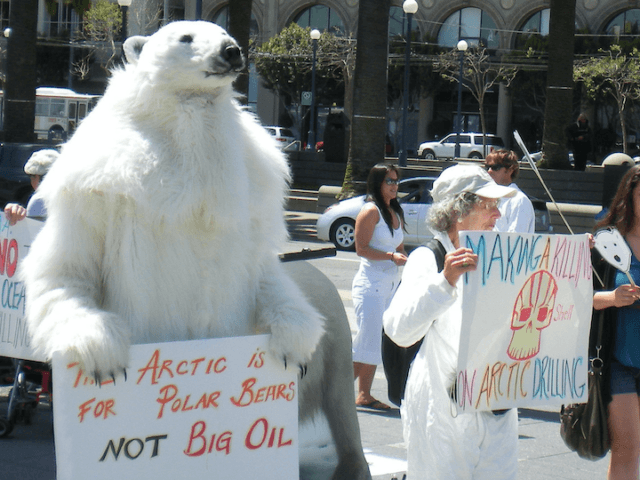A federal district judge in San Francisco dismissed a lawsuit Monday that had been brought by the cities of San Francisco and Oakland seeking financial compensation from oil companies for the cost of fighting climate change, including building walls to protect the municipalities from future sea rise.
Judge William Alsup wrote in his ruling that all parties in the case agree that greenhouse gases have allegedly caused the earth to warm (1.8 degrees Fahrenheit in 120 years). However, he said, the oil companies — BP, Chevron, ConocoPhillips, Exxon Mobil and Royal Dutch Shell — could not be held solely responsible for any damage caused by fossil fuels given that society as a whole had contributed to the problem and, moreover, benefited from the energy produced.
Alsup also ruled that decisions that regulate what is otherwise a legitimate and lawful business conducted in the American marketplace should be decided by the legislative and executive branches, not the judiciary. That was especially true where the decision could have a global impact.
The judge’s decision reads, in part:
The scope of plaintiffs’ theory is breathtaking. It would reach the sale of fossil fuels anywhere in the world, including all past and otherwise lawful sales, where the seller knew that the combustion of fossil fuels contributed to the phenomenon of global warming. While these actions are brought against the first, second, fourth, sixth and ninth largest producers of fossil fuels, anyone who supplied fossil fuels with knowledge of the problem would be liable.
…
With respect to balancing the social utility against the gravity of the anticipated harm, it is true that carbon dioxide released from fossil fuels has caused (and will continue to cause) global warming. But against that negative, we must weigh this positive: our industrial revolution and the development of our modern world has literally been fueled by oil and coal. Without those fuels, virtually all of our monumental progress would have been impossible. All of us have benefitted. Having reaped the benefit of that historic progress, would it really be fair to now ignore our own responsibility in the use of fossil fuels and place the blame for global warming on those who supplied what we demanded? Is it really fair, in light of those benefits, to say that the sale of fossil fuels was unreasonable?
…
In sum, this order accepts the science behind global warming. So do both sides. The dangers raised in the complaints are very real. But those dangers are worldwide. Their causes are worldwide. The benefits of fossil fuels are worldwide. The problem deserves a solution on a more vast scale than can be supplied by a district judge or jury in a public nuisance case. While it remains true that our courts have authority to fashion common law remedies for claims based on global warming, court must also respect and defer to the other co-equal branches of government when the problem at hand clearly deserves a solution best addressed by those branches.
The National Association of Manufacturers praised the decision, according to a press statement.
“From the moment these baseless lawsuits were filed, we have argued that the courtroom was not the proper venue to address this global challenge,” Jay Timmons, president and CEO of the association, said.
Follow @PennyStarrDC on Twitter

COMMENTS
Please let us know if you're having issues with commenting.